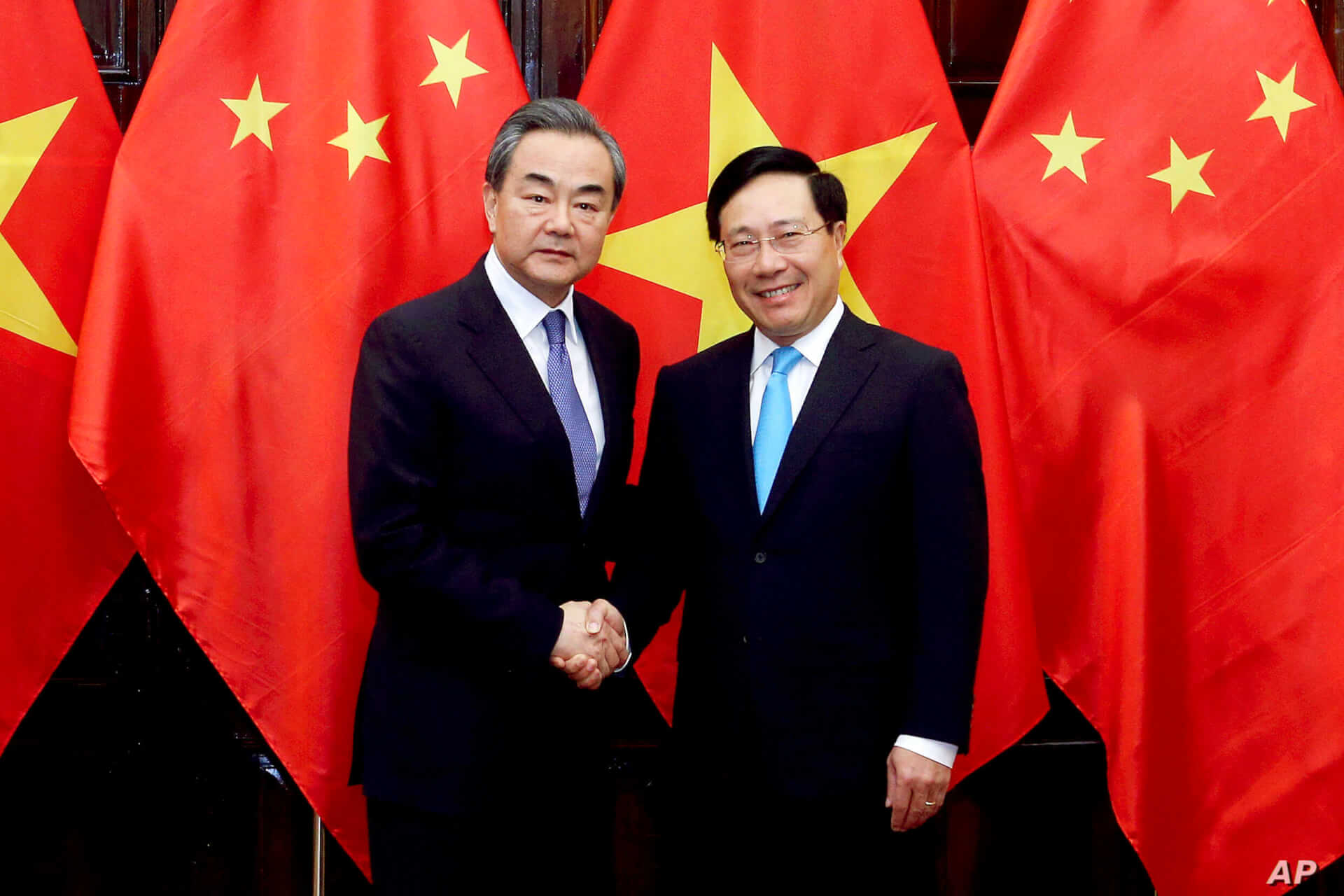China is looking to mend fences with its Southeast Asian neighbors and seeking closer economic ties by offering coronavirus recovery aid, as its relations with the United States (US) continue to sour over developments in the South China Sea (SCS).
On Tuesday, State Councilor and Foreign Minister Wang Yi co-chaired the 12th meeting of the China-Vietnam Steering Committee for Bilateral Cooperation via video conference with Vietnamese Deputy Prime Minister and Foreign Minister Pham Binh Minh. The leaders discussed the situation in the SCS, and their differing stances on the matter. Deputy PM Minh stressed that it was important the two sides work together to resolve issues, rather than complicating and expanding disputes. Meanwhile, FM Wang said that Beijing’s policy towards the SCS remained unchanged, and blamed the US for stirring up tensions and turmoil, further reiterating that it was China who sought regional peace and stability.
China has taken a series of provocative actions in the waters since the beginning of this year as the world focused on battling the coronavirus pandemic. Beijing claims almost 90% of the sea and cites historical records to support its drilling, surveillance, and island construction within the nine-dash-line. In recent months, Vietnam has criticized China for an increased activity near the Paracel Islands, which are claimed by both countries.
At the meeting, Wang said that the South China Sea is the “common home” of China and ASEAN, and called on countries in the region to be wary of the US’ actions. He also called on the two sides, together with other ASEAN member states, to adhere to the Declaration on the Conduct of Parties in the South China Sea (DOC), to push forward the consultation on the Code of Conduct (COC), and not to give any opportunity for interference and destruction by external forces. Pham expressed Hanoi’s interest to work with China to ensure peace and stability in the region, and promote maritime cooperation and development.
In other efforts to strengthen bilateral ties with its neighbors, Beijing also announced the completion of a China-Cambodia Free Trade Agreement (FTA) talks, after the two countries first launched negotiations on January 20 of this year. Under its terms, China is expected to export more “intermediate textile products” to Cambodia, and Pnom Penh will export more raw materials to China to boost its economy. Chinese businessmen will also invest in Cambodia in areas such as finance and services. Chinese Premier Li Keqiang also held virtual talks with Laos Prime Minister Thongloun Sisoulith on Tuesday, which aimed “to send out a positive signal of seeking mutually beneficial cooperation and jointly combating challenges”.
China Maritime Coverage:
- South China Sea Standoff: Indonesia Deploys Fighter Jets and Warships to Thwart China
- Malaysia-China Standoff in South China Sea Leads to Five Nation Face-Off
- Philippines Temporarily Backtracks From Decision to End Military Agreement With US
- Japanese Local Authority Moves to Rename Disputed Islands, Irking China
- US House Foreign Affairs Committee Holds Hearing Titled “China’s Maritime Ambitions”
- US Aircraft Carriers Deployed to South China Sea During Chinese Military Drills
- US, Japan Accuse Beijing of Territorial and Maritime Aggression
Relations between the US and China two nations have worsened in recent months as the two nations continue to lock heads over China’s handling of the coronavirus outbreak, its aggression in the South China Sea, the new national security law in Hong Kong, the treatment of minorities in Xinjiang and security measures in Tibet. Last week, US Secretary of State Mike Pompeo formally rejected Beijing’s maritime claims in the SCS and deemed them illegal. The United States has also imposed sanctions on senior officials of the Chinese Communist Party and on businesses for their involvement in human rights abuses targeting Muslim minorities in Xinjiang. Both sides recently introduced tit-for-tat visa restrictions on officials involved in formulating policies for Tibet. The two countries are also sparring on nuclear arms control negotiations along with Russia.
China has retaliated with sanctions against US officials including former presidential candidates Ted Cruz and Marco Rubio over Washington’s “interference” in China’s internal affairs in Xinjiang. The Chinese foreign ministry has also said that the government will impose sanctions on aerospace and defense company Lockheed Martin for its involvement in the latest $620 million US arms sale to Chinese-claimed Taiwan.

